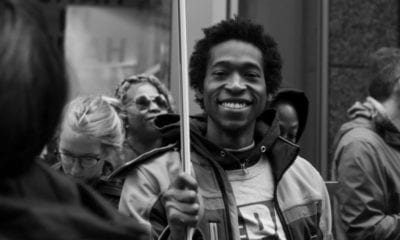

Calvin Wongus has had no trouble finding employment in the tight labor market. But for the poorest workers like himself, the jobs have been low-paying and part-time.


Disneyland is facing a class-action lawsuit from workers who claim the Anaheim resort is dodging a new minimum wage law.
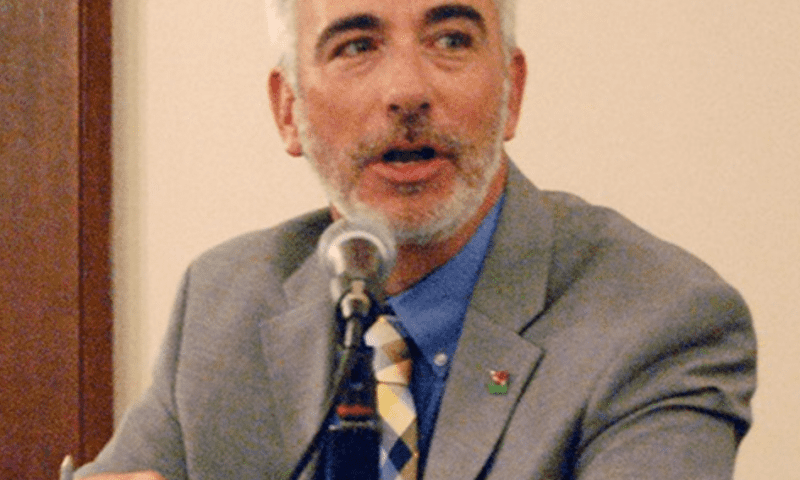

“What’s Next After $15?” a forum recently held by the American Civil Liberties Union’s Pasadena chapter, brought together community organizers and antipoverty activists to discuss the challenges now faced by the City of Roses to implement its new living wage law.
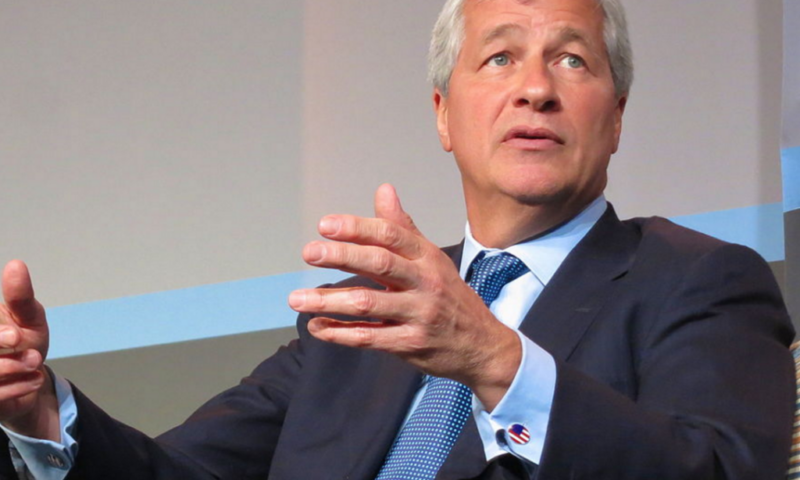

Jamie Dimon, CEO of JPMorgan Chase, knows something about pay increases. Last year, JPMorgan Chase’s board gave Dimon a 35 percent pay increase, from $20 million to $27 million, even though the bank’s profits fell two percent and it laid off 6,671 employees.
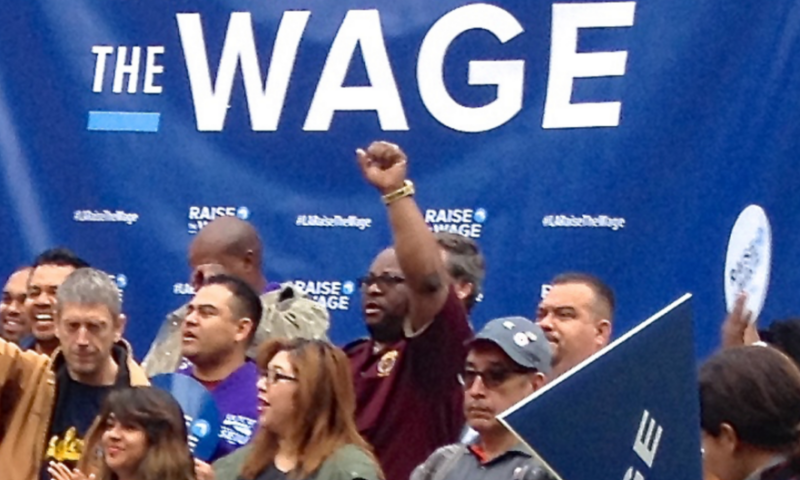
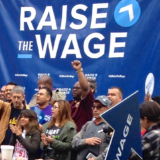
At a time when the income chasm between California’s wealthiest and poorest residents continues to be one of the widest in the nation, 2016 might become a watershed year in California’s ongoing struggle to achieve income equity for the state’s nearly 4.8 million low-wage households.
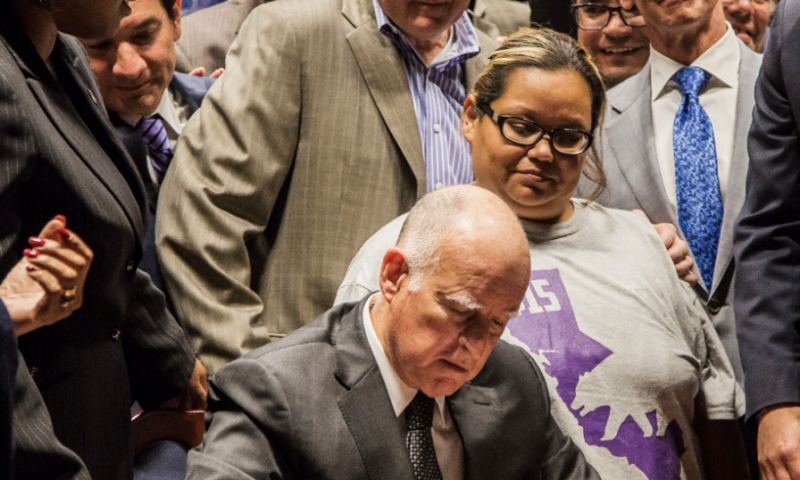
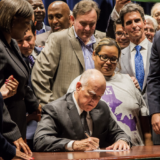
The placards stacked outside the Ronald Reagan State Building said it all: “We Did It!” The hundreds of low-income workers who had just carried those signs had come to downtown Los Angeles Monday morning to celebrate “it” – the passage of a $15 an hour state minimum wage. The mood was jubilant, almost delirious, in anticipation of Governor Jerry Brown’s arrival to sign the measure, known as Senate Bill 3.
To be clear: The new wage law does not mean fast-food workers, janitors, in-home caregivers or others are about to jump from earning $10 an hour to $15. Come January 1, 2017, people earning the current minimum wage will move to a $10.50 hourly wage. The following January, it will go up to $11, not reaching $15 until 2022 (2023 for workers employed in companies with 25 or fewer workers). But along the way, workers who previously had to get sick on their own time will be given three paid days off – a big boost for their health and the well-being of both the people they work with and serve.
» Read more about: Sweet 15: Governor Signs $15 an Hour Minimum Wage Bill »
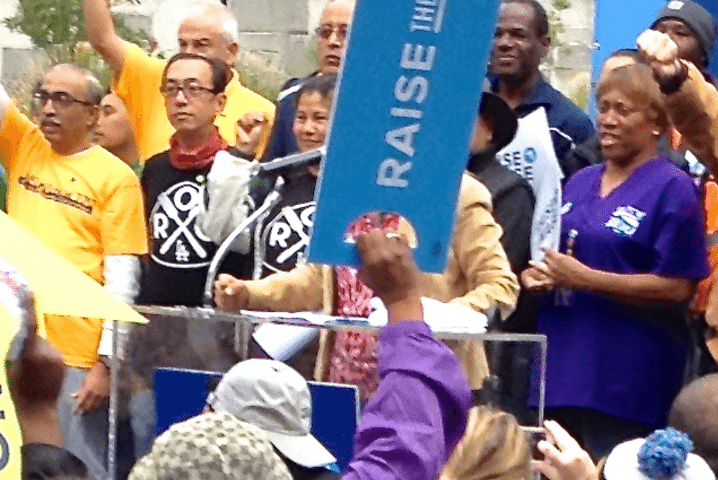
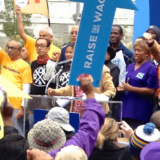
Barring an unexpected reversal of fortune, California is on track to become the first state to officially raise its minimum wage to $15 an hour. News first emerged on March 26 of an agreement with Governor Jerry Brown and leading Democratic legislators to raise the wage from its current $10 hourly mark to $10.50 beginning January 1, 2017, followed by continuous upticks that will result in the wage leveling off at $15 an hour by 2022. (Businesses employing fewer than 26 workers would get an extra year to institute the increases.)
After that the minimum can rise – but not fall – according to inflation. The agreement includes a provision giving workers three days of paid sick leave annually; it also permits California governors to freeze the wage in times of extreme economic downturn.
The movement toward a $15 wage has not followed a straight line,
» Read more about: Historic Minimum Wage Raise on California’s Horizon »
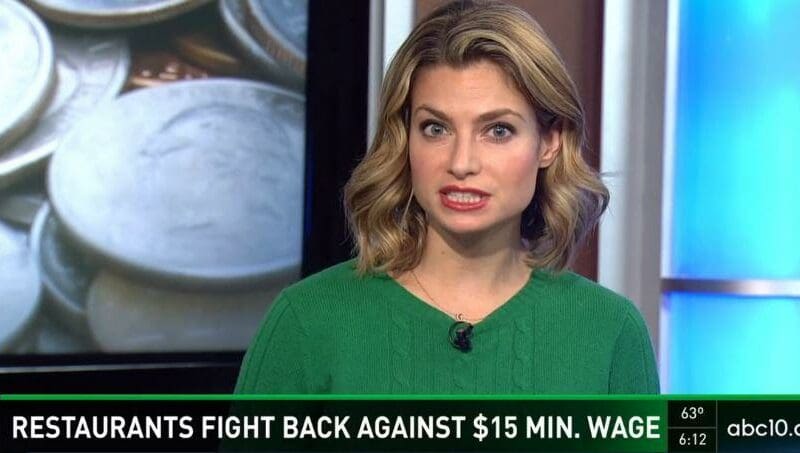

What can happen when voters use electoral politics to raise the minimum wage? For one thing, some mainstream media can go on the attack by editorializing in coverage that poses as “news.”
Take, for example, ABC Channel 10’s recent television coverage of business’ fight to strangle Sacramento’s $15-an-hour minimum-wage measure in the petition process. Region Restaurants, a trade group of caterers and eateries, is rallying public opinion against the capital city’s minimum-wage measure that could, with 21,503 registered voter signatures, qualify for the November 2016 ballot. The current California minimum wage is $10 an hour.
Anchorman to Minimum Wage Petitioners: “Be careful of the unintended consequences.”
In a February 10 broadcast of the station’s “Real Money” news segment, co-anchor Dale Schornack announced the $15 measure would begin in 2017. His statement was off by three years – close enough for a game of horseshoes,
» Read more about: Sacramento Waiters Make $50 an Hour, TV Station Claims »
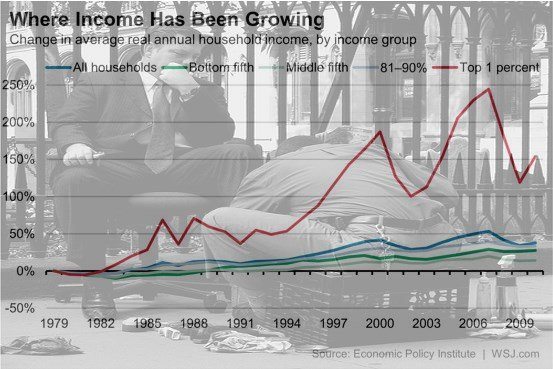
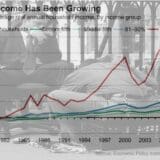
Americans don’t like inequality. We like to think of ourselves as a middle-class country where the top is not out of reach and the bottom doesn’t pose such a grim, cautionary specter that people fear for their livelihoods. We like to think that’s what makes us different from other societies. Or at least that’s the way it used to be.
CNN journalist John Blake, who grew up in Baltimore, remembers it this way: “Black men had good blue-collar jobs…Kids played baseball and basketball and every known sport at public fields and courts. We had summer jobs and internships.” Today, he says, “the factories and playing fields are locked behind gates or overgrown with weeds.”
Somehow the value of a stable, vital middle class has slipped from America’s vision for itself.
That shift characterizes America far beyond Baltimore. It describes the inequality that has replaced the solid middle class.
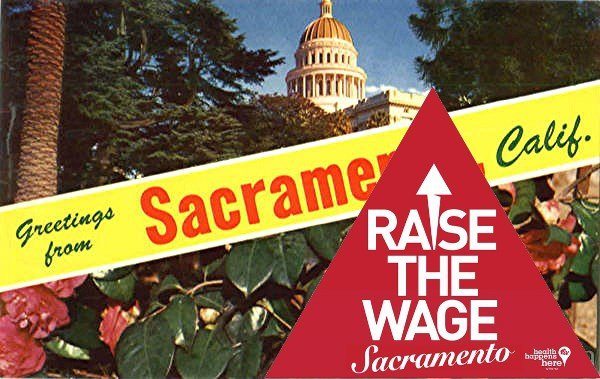
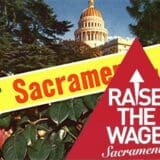
On December 21, 2015, Organize Sacramento and Raise the Wage Sacramento filed documents with the city clerk to gather 21,503 valid voter signatures necessary to place a minimum-wage measure on this year’s November ballot. The measure would boost the city’s minimum wage to $15 by 2020, peg it to the Consumer Price Index and let workers earn paid sick leave.
Activists: City-approved wage hike is too low and too slow.
Two months earlier the city council, on a 6-3 vote, had approved a minimum-wage ordinance bump to $12.50 by 2020. For Organize Sacramento and Raise the Wage Sacramento, though, that was too low and slow, spurring the current ballot drive for a $15 minimum wage. The Democratic Party of Sacramento County, Restaurant Opportunities Center United , Capital Region Organizing Project and Center for Workers’ Rights also back the measure.
» Read more about: Sacramento’s Minimum-Wage Rumble Begins »
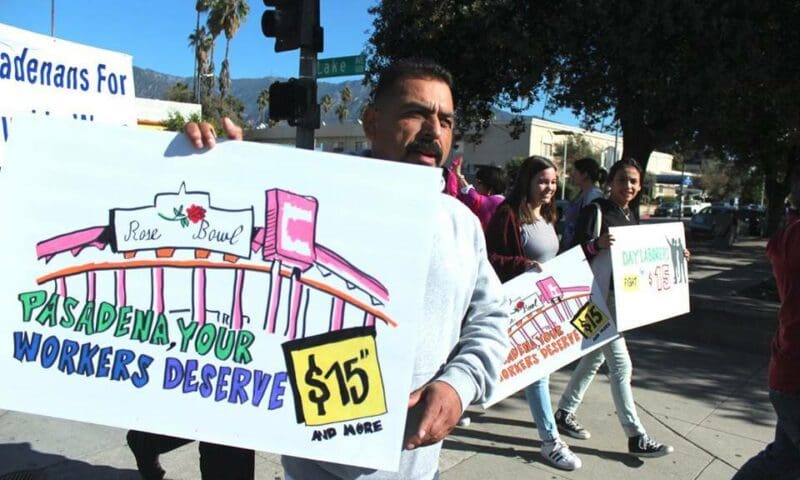
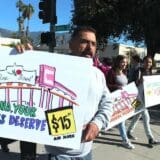
Pasadena, California — home of the annual Tournament of Roses parade and the Rose Bowl football game — is known as the City of Roses. But a broad coalition of low-income workers, middle class professionals, clergy, nonprofit leaders, educators, unions, community and civic groups, and enlightened businesses has come together to transform Pasadena into the City of Raises.
They have built a movement to urge Mayor Terry Tornek and the City Council to adopt a law raising the minimum wage gradually to $15 an hour by 2020, just as the City of Los Angeles and Los Angeles County did last summer, and other area cities (Long Beach, Santa Monica, West Hollywood and Glendale, among them) are considering.
These efforts are part of a growing national movement to improve wages and working conditions for low-wage Walmart and fast-food workers, janitors, hospital employees and others. They’ve been pushing cities to adopt minimum wage laws and pressuring big corporations to increase pay for its low-wage employees.
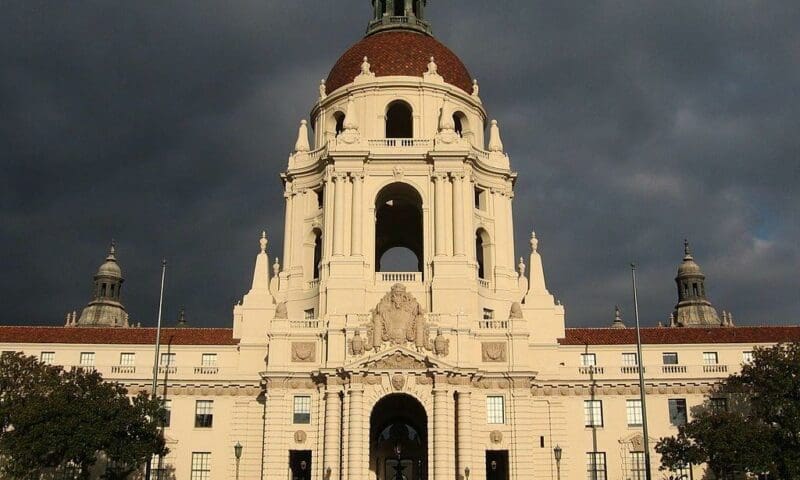

If you would like to help lift thousands of Pasadena families out of poverty, please join us on Saturday as we march to urge Pasadena’s mayor and city council to adopt a $15/hour minimum wage (gradually by 2020), then adjust it annually for inflation — similar to the law that the City of Los Angeles and L.A. County (for unincorporated areas) adopted in June.
What:
March from Pasadena Community Jobs Center to Central Park and rally to raise the wage and abolish wage theft.
When:
Saturday November 14, 9 a.m.
Where:
Begin at Pasadena Community Jobs Center, 500 N. Lake Avenue, Pasadena
(Click on event flyer)
Since L.A. adopted its minimum wage law, a number of other cities in L.A. County (including Long Beach, Santa Monica, West Hollywood, Glendale and others) are considering doing the same.
» Read more about: Saturday Rally Targets Pasadena Minimum Wage »
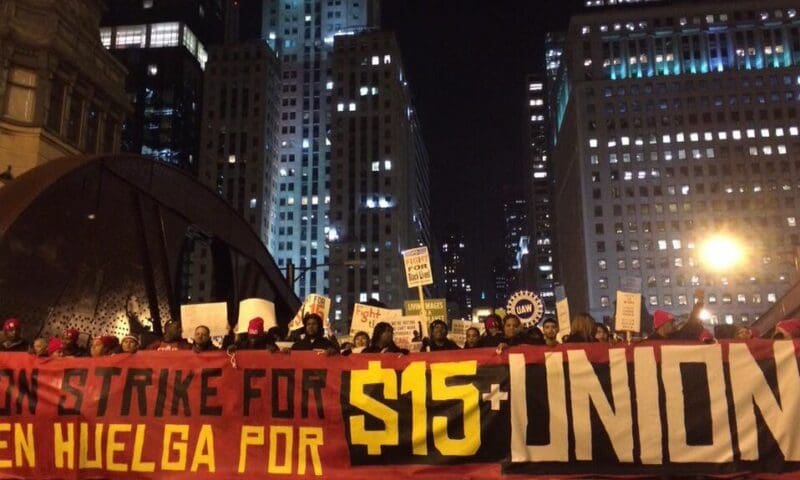
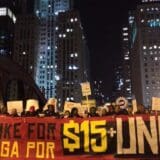
Last night’s Republican debate got underway following a day of national demonstrations in favor of raising the American minimum wage to $15 an hour — a day of protest accompanied by nothing-to-lose strikes by fast-food workers. The debate began with a question about raising the minimum wage. The first candidate to speak said America’s wages were, in fact, “too high” and that the current federal minim wage of $7.25 has to stay where it is.
The second presidential hopeful argued that the reason there are high unemployment rates among young African Americans is “because of those high wages.” The next candidate followed by calling the minimum wage “a disaster” for the 20th century and predicted catastrophe for the 21st should the day come when higher wages “make people more expensive than a machine.”
For a moment it looked as though the debate would become a contest to see which candidates would lower the minimum wage the most.
» Read more about: Not Debatable: Minimum Wage Movement Gains Ground »
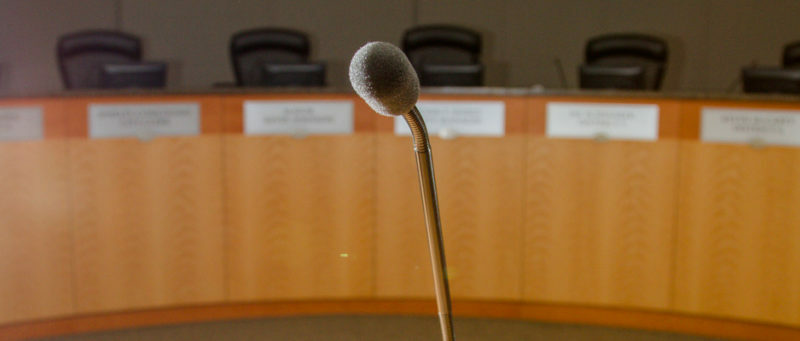

High rent and low wages are squeezing poor and low-income families across California, including those living in its capital. But the Sacramento City Council’s actions on both economic issues are weak, some progressive critics say.
“The city caters to the continued gentrification of downtown,” Bob Erlenbusch, executive director of the Sacramento Regional Coalition to End Homelessness, said in an email to Capital & Main. “That is underpinned by market-rate housing surrounding the new arena.”
The vast majority of Sacramento’s low-income residents live outside the revitalized central city.
In 2014 the Sacramento City Council threw its political weight (without a public referendum) behind Golden 1 Center, the new $507 million downtown arena that is the future home of the Sacramento Kings basketball team. This September the council approved a plan for the city to issue $272.9 million in bonds,
» Read more about: Housing and Wages: The Sacramento City Council's Weak Half-Measures »
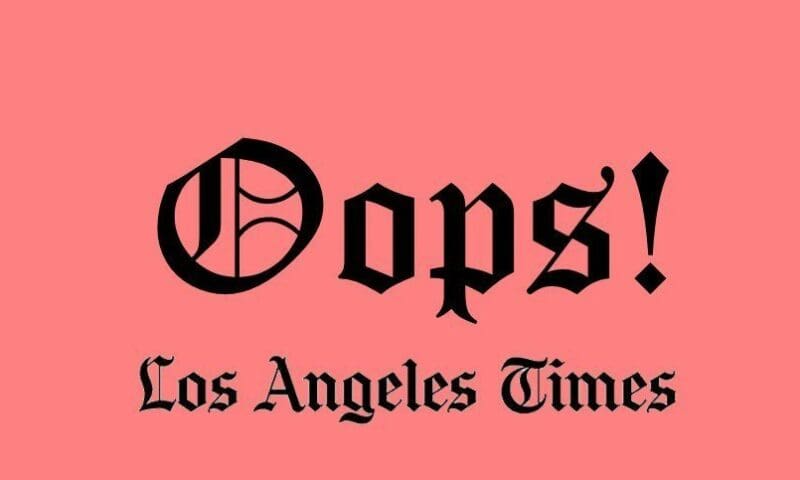

A recent L.A. Times story profiled a fast-food worker who, according to reporter Don Lee, would lose eligibility for Medicaid if his wages were raised to $15. His wage gains could be “wiped out” by the higher health care costs he’d end up paying. Lee’s portrayal was inaccurate and misleading.
The story centers on 53-year-old Douglas Hunter, a Chicago McDonald’s cook and a leader in the Fight for $15, a national movement of fast-food workers who are pushing for $15 in hourly wages and the right to form a union without employer retaliation.
Hunter is currently enrolled in CountyCare, a Medicaid-managed care plan that pays for his health care, including more than $700 per month in medications and supplies he needs to manage his diabetes, cholesterol and blood pressure. Contrary to Lee’s assertion, Hunter would still qualify for Medicaid based on his income if his wage were raised to $15.
» Read more about: L.A. Times Calls Out Fight for $15 Guy, Gets It All Wrong »
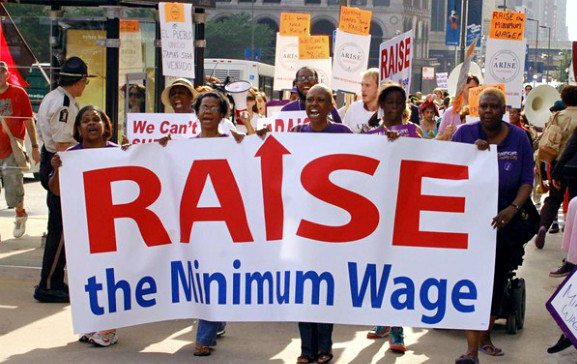
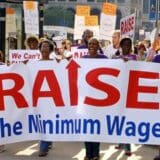
On Tuesday, the Los Angeles City Council voted 14-1 to adopt a citywide minimum wage of $15/hour by 2020. The next day, marching behind a giant banner that read, “McDonald’s: $15 and Union Rights, Not Food Stamps,” 5,000 cooks and cashiers show up at the company’s corporate headquarters in Oak Brook, Illinois, to kick off the largest-ever protest to hit the burger giant’s annual shareholder meeting.
These events represent the two battlegrounds in the growing war over wages taking place across the country. One strategy focuses on getting elected officials in local and state governments to adopt minimum wages above the federal level. The other strategy involves putting pressure on major employees — typically highly visible companies that depend on positive public relations to gain consumers’ dollars — to raise the wages of their employees.
The two strategies complement rather than compete with each other,


Emeryville, California is more than a brief Amtrak stop across the bay from San Francisco. On Tuesday evening all five Emeryville City Councilmembers approved an ordinance that increases the minimum wage for workers employed at small firms to $12.25 an hour, effective July 1. Employees at Emeryville companies with more than 55 employees, such as Home Depot and Ikea, will earn a minimum wage of $14.44 an hour, also to begin July 1.
“This is a momentous occasion for the city of Emeryville,” Jennifer Lin, deputy director of the East Bay Alliance for a Sustainable Economy, told Capital & Main by phone. “Many of the city councilmembers in their deliberations spoke about the need to address income inequality, to give workers a leg out of poverty.”
California’s current hourly minimum wage is $9, an increase of $1 over 2014. Meanwhile, the Golden State’s rate of poverty in 2013 was 23.4 percent,
» Read more about: Emeryville Joins Movement to Raise Minimum Wage »
About one thousand Angelenos marched and rallied for a $15 minimum wage near downtown Los Angeles Wednesday. While several protests occurred at fast-food outlets and other locations across the city early in the morning, the main event began shortly before lunchtime, when demonstrators gathered at a McDonald’s located on Figueroa and 28th streets, and then marched to the Tommy Trojan statue on the University of Southern California campus.
Part of a nationwide Tax Day protest, L.A.’s Fight for $15 marchers included Walmart workers, members of California’s In-Home Health Supportive Services and part-time instructors from USC. One university activist named Maria told Capital & Main that she was a first-generation college student from a working class family. She claimed that USC is pitting the needs of students against raising the incomes and working conditions of part-time academic employees.
“Some faculty are not making ends meet —
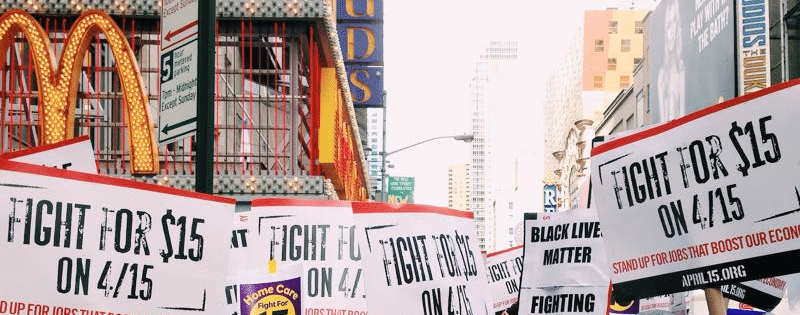
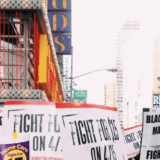
As President Obama’s efforts to nudge the U.S. minimum wage from $7.25 to $10.10 an hour continue to be rebuffed by a Republican Congress, a national coalition of low-wage fast-food and retail workers will be taking their demands for a doubling of the current wage to the streets on Wednesday, in what they promise will be “the largest low-wage worker strike in history.”
Kendall Fells, the organizing director for the Fight for $15 campaign, said the April 15, 200-city walkout will also include actions on about 170 college campuses around the country and abroad.
Wednesday’s one-day strike is part of a three-year campaign spearheaded by the Service Employees International Union and the AFL-CIO to build public support for raising the pay for fast-food and other low-wage workers, a boost that would lift about 12 million Americans above the federal poverty line of $23,850 a year for a family of four.
» Read more about: Minimum Wage Protests Planned for April 15 »


California is one of only seven states that pays tipped workers their state’s minimum wage instead of the penurious $2.13 (the federal minimum) to $5 range. California’s wait staff and other service workers collect a $9 hourly minimum—plus gratuities. Legislation will raise the state minimum wage to $10 hourly next year. But that won’t apply to tipped workers, if a proposed bill passes the California legislature and becomes law.
Assembly Bill 669 was sponsored by the California Restaurant Association (CRA) and introduced by Assemblyman Tom Daly (D-Anaheim). Daly’s bill would cap the minimum wage for California’s tipped workers at $9 if they earn a total of $15 hourly. Far more disturbing to low-income service employees, however, is a passage embedded in the bill that could undo local minimum wage ordinances previously approved by voters in Oakland, Richmond, San Francisco and San Jose.
Those measures would be overturned unless they “specifically reference” the Daly bill’s language – an unlikelihood,
» Read more about: Will a New California Bill Trump Minimum Wage Ordinances? »